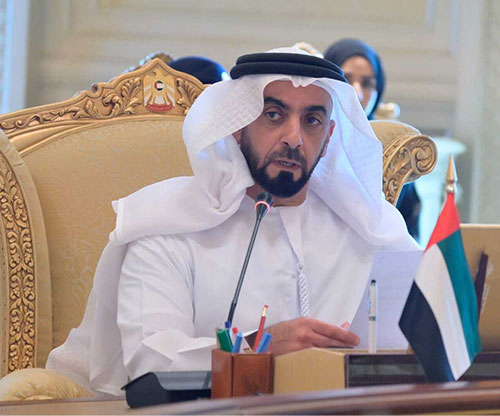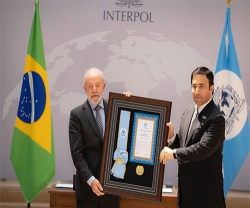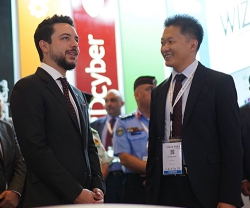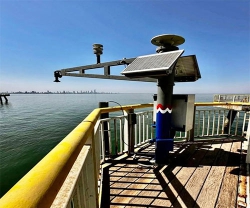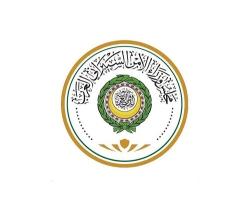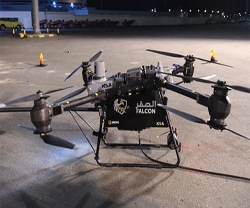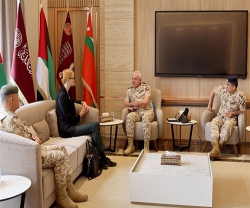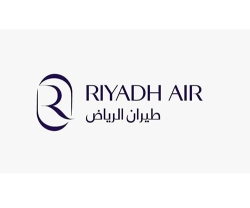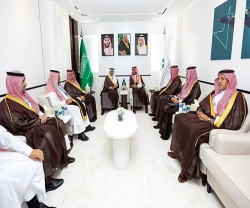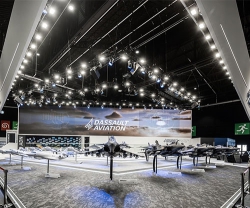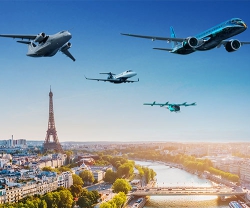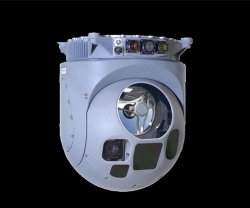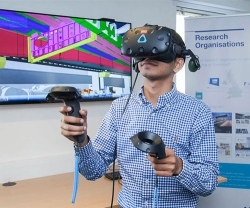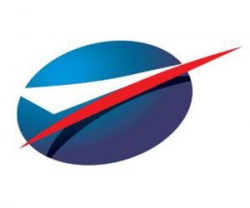Lt. General H.H. Sheikh Saif bin Zayed Al Nahyan (photo), UAE’s Deputy Prime Minister and Minister of the Interior, chaired Thursday the Fifth Ministerial Meeting of the International Security Alliance, at the Emirates Palace in Abu Dhabi.
The meeting was attended by the member states of the Alliance to bolster collaborative international endeavours to combat organised and cross-border crimes and combat extremism, terrorism, and radicalism in all its manifestations.
Sheikh Saif underscored the significance of this meeting, which amplifies the collective efforts of nations worldwide and the international community to forge more secure and stable societies. This endeavour hinges on exchanging collaborative opportunities, shared experiences, and best practices in law enforcement.
The Minister emphasised that this ministerial gathering represents a continuation of the Alliance’s joint international agenda, strengthening collaboration and uniting forces to ensure protection and safety. This collective resolve aims to tackle crime in all facets, thus promoting security, UAE national news agency WAM reported.
The meeting was attended by Lt. General Sheikh Rashid bin Abdullah bin Ahmed Al Khalifa, Minister of the Interior of Bahrain; Professor Mohamed Fasil, Minister of State for Home Affairs of Singapore; Dylan Jeschelgus Szegerius, Minister of Justice and Security of the Netherlands; and Gerald Dramanan, Minister of the Interior of France.
Additionally, Matteo Pentedosi, Minister of the Interior of Italy; and Fernando Grande Malasca, Minister of the Interior of Spain, participated remotely via video communication. Expert representatives and officials from the Interior Ministries of International Security Alliance member countries were also in attendance.
The meeting tackled the latest developments within the Alliance’s activities, including workshops and training seminars such as “a workshop on post-release procedures for extremists,” “a workshop on the use of drones by extremist groups,” training on cybercrimes, and a joint anti-drug operation.
Furthermore, experts presented their insights on the “Response Model for Preventing and Countering Violent Extremism Online.” As the global threat landscape evolves, this model provides a comprehensive blueprint for nations to adopt a multi-stakeholder approach to address security threats.
The participants unanimously stressed the necessity of sustaining and intensifying joint international action while bolstering collaboration with all stakeholders to explore security solutions and confront organised and cross-border crimes. This commitment arises from their shared vision, underpinned by the belief in the common good and noble aspirations of societies and individuals worldwide.
They emphasised the importance of harnessing the available capabilities of member states to uphold the values of peace, cultivate tolerance, and promote coexistence among all religions and nationalities, while combatting intolerance and racism.
The attendees collectively endorsed the significance of implementing vital projects and initiatives that enhance integration and interdependence and contribute to regional stability and prosperity.
They also highlighted that sharing expertise and experiences and adopting the best international practices in security and law enforcement are essential steps toward sustaining the security process and achieving favourable results.
H.H. Sheikh Saif, before the start of the meeting, accompanied by Guest Ministers, met with representatives of international organisations and bodies participating in the seventh edition of the Interpol Dialogue, which is hosted by the UAE.
The meeting discussed the importance of communication and international action in the presence of representatives of INTERPOL, the Council of Arab Interior Ministers, the Cooperation Council for the Arab States of the Gulf, the Gulf Police Service, the African Criminal Police Organisation (AFRIPOL), the Latin American Police Community Organisation (AMERIPOL), the Association of Southeast Asian Nations (ASEANAPOL) and the relevant executive agency, Crime control and security (IMPACS) and some other organisations.

